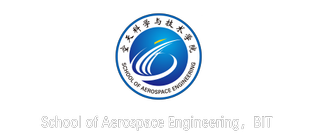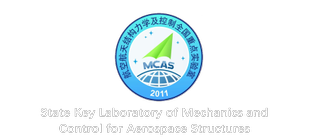旋转电动帆推进性能指标分析
张恒,文浩,罗操群
摘要:电动太阳风帆(简称电动帆,E-sail),是一种新兴的利用太阳风动能产生冲力,实现无工质消耗的空间推进技术。本文考虑由两颗微小卫星通过导线连接构成的电动帆系统,关注传统电动帆推力模型研究中忽略的电动帆姿态对推力的影响,采用旋转电动帆“哑铃”模型假设进行动力学建模。最后,针对日心非开普勒轨道环境开展算例仿真,计入太阳风库仑力摄动的影响,分析电动帆的推进性能指标。仿真结果表明,电动帆推进效率主要由导线长度、导线电势、卫星质量和相对于飞行方向的俯仰角决定。
关键词:电动帆, 推力模型, 太阳风, 库仑力
ANALYSIS OF ROTATING ELECTRIC SOLAR SAIL FOR SPACECRAFT PROPULSION
Heng Zhang, Hao Wen, Caoqun Luo
Abstract: The electric solar sail (E-sail) is a new propulsion concept which can extract momentum from the solar wind almost without comsuming any propellant. The dynamic characterisitcs of a E-sail system composed of two microsatellites connected each other by tethers were investigated. The E-sail system was modelled by adopting the dumbbell model assumption accounting for the attitude of electric solar sail, which was neglected in traditional models. Numercial simulations based on heliocentric non-kepler orbits were carried out to evaluate the propulsion performance under the coulomb force from the solar wind. The simulation results indicated that the propulsive efficiency of the E-sail was largely influenced by the lengths and voltages of the tethers, the masses of the satellites and the pitch angle with respect to the flight direction.
Keyword: electric solar sail, thrust model, solar wind, coulomb force
原文链接:http://dlxykzxb.cnjournals.net/jdc/article/abstract/20190311?st=search





